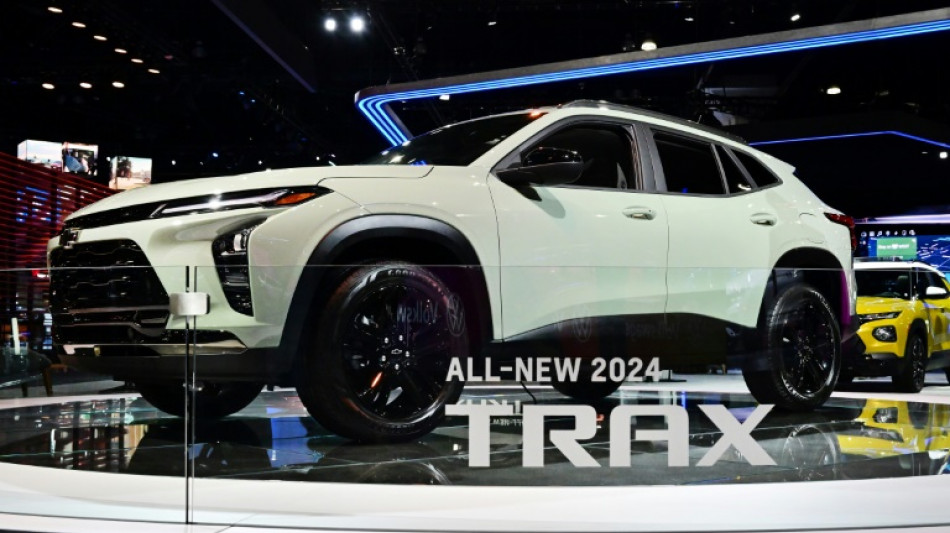

GM cuts 2025 outlook, projects up to $5 bn hit from tariffs
General Motors pledged Thursday to take additional steps to boost its US supply chain after projecting a $4-5 billion hit to the US auto giant's 2025 earnings from President Donald Trump's tariffs.
GM expects to offset "at least" 30 percent of that tariff hit from "self help" measures that include relatively quick changes to its production and supply chain footprint, executives said.
Chief Executive Mary Barra described her talks with Trump and his administration as "very productive," praising a White House move on Tuesday to temper tariffs on auto parts as advancing "our shared goals of growing the US auto industry which will be good for America in the long term."
On Thursday, GM updated its adjusted earnings range to $10 billion to $12.5 billion from the earlier $13.7 billion-$15.7 billion.
The impact includes $2 billion in estimated tariffs on finished vehicles from South Korea, where GM manufactures a number of value-priced autos, including the Chevrolet Trax, a small sport utility vehicle.
GM postponed its earnings conference call until Thursday after Trump's tariffs move.
The US president also released a proclamation that gives the industry a two-year grace period to reduce "American reliance on imports of foreign automobiles and their parts" -- designed to encourage firms to move supply chains stateside.
Under that policy, companies that import parts for vehicles assembled in the United States would be able to offset 3.75 percent of a vehicle's list price in the first year and 2.5 percent in the second year.
But Trump has not taken steps to mitigate a 25 percent tariff on auto imports, which also affects GM vehicles made in Canada and Mexico.
In media interviews Thursday, Barra said the company is considering its global operations in light of Trump's tariff policy, while monitoring trade talks between the United States and South Korea.
"Our entire footprint is under review," Barra said on Fox Business.
- Excess capacity -
GM said earlier this month that it plans to boost truck production at its plant in Fort Wayne, Indiana.
Barra signaled similar steps at other plants were likely, noting the company has "excess capacity" at manufacturing facilities in the United States and adjustments would be faster to make at existing factories.
Other quick "self help" measures include shifting more electric battery module production to the United States and working with auto suppliers to boost their US-supplied content for GM vehicles, said Barra, who noted that the company is also working to avoid unnecessary discretionary spending.
"There's a lot of levers that we can pull," Barra said. "We'll be announcing more as we go forward."
- Higher retail prices? -
GM's American rival Ford reported a 16.2 percent surge in US auto sales for April after the company extended employee pricing to retail customers.
Chief Executive Jim Farley told Fox Business on Wednesday that Ford will extend that promotion through the July 4 Independence Day holiday.
Ford will have additional comment on tariffs when it reports earnings next week, but Farley told Fox Business that a push to have US-assembled vehicles made entirely of US-made parts would mean higher prices for customers.
Even with Trump's modifications, automakers face a 25 percent tariff on imported parts after the two-year grace period. Ford currently imports 15 percent of its parts.
"What is the right balance between affordability and making 100 percent of the parts here?" Farley asked. "The issue is that it would increase the price a couple of thousand dollars, so that's the debate right there."
Shares of GM rose 1.7 percent in morning trading, while Ford jumped 3.0 percent.
R.Ryan--NG



